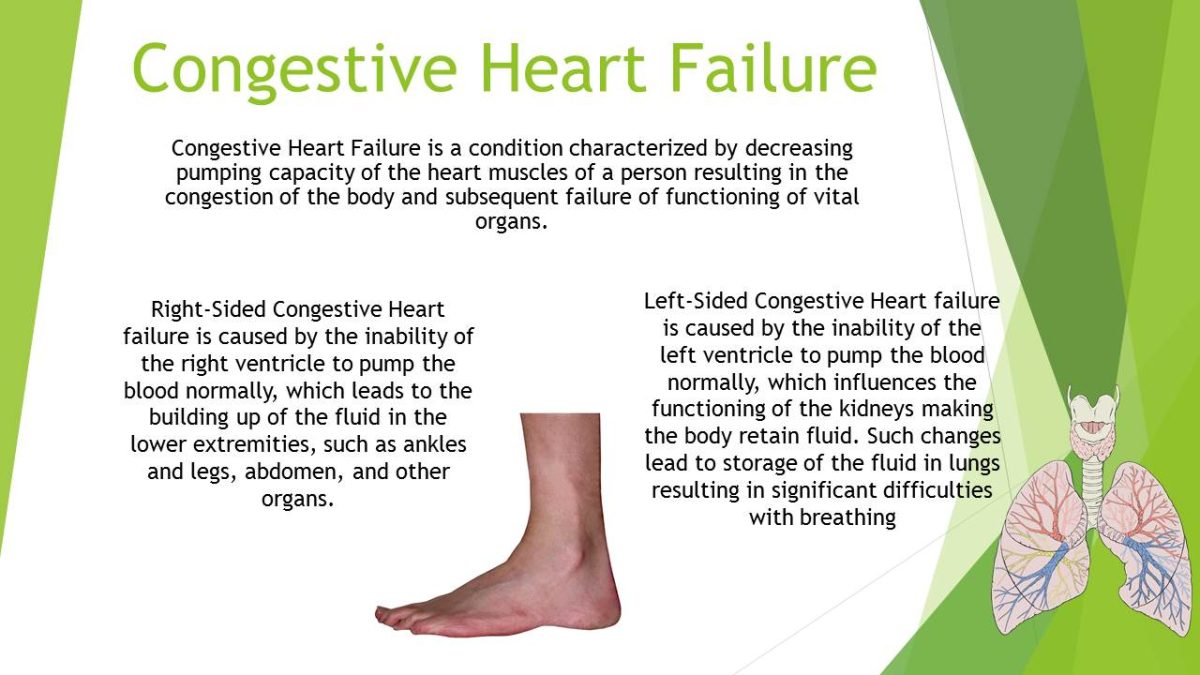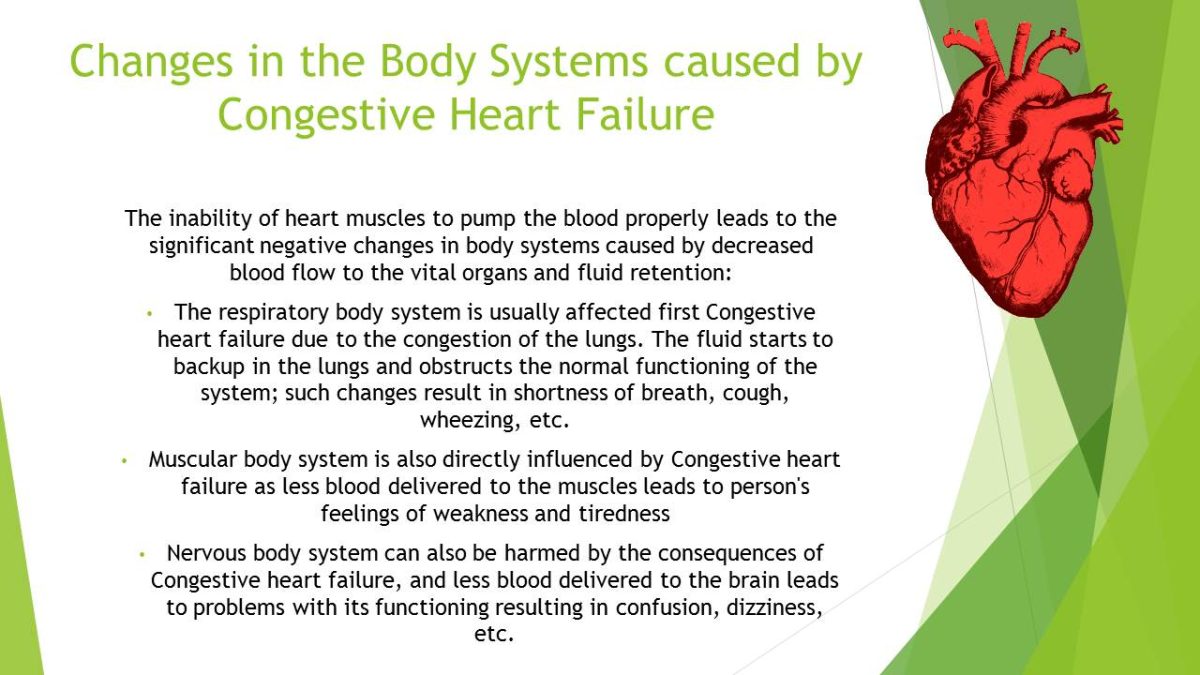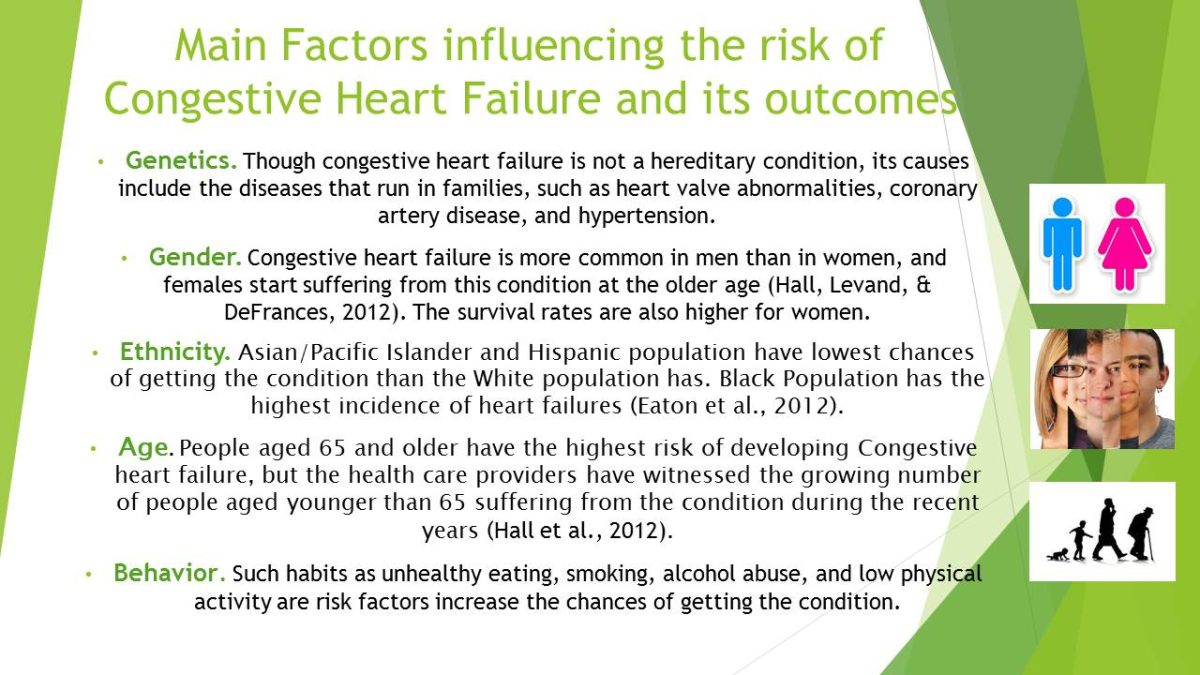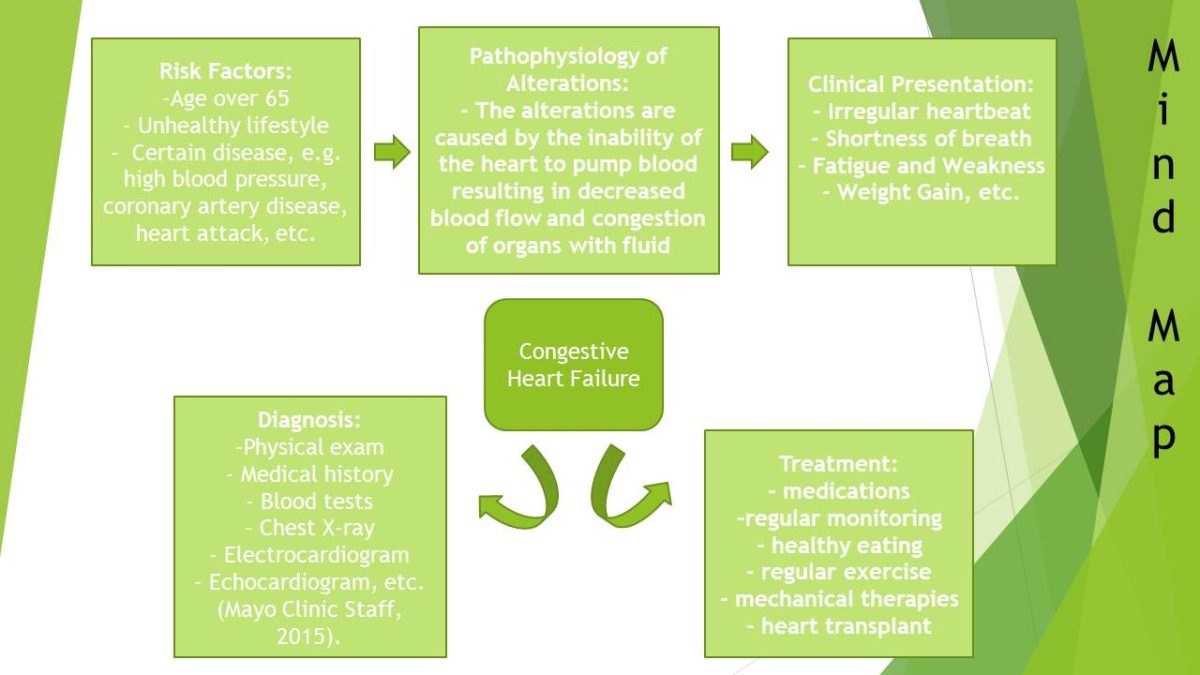Congestive Heart Failure
Congestive Heart Failure is a condition characterized by decreasing pumping capacity of the heart muscles of a person resulting in the congestion of the body and subsequent failure of functioning of vital organs.
- Right-Sided Congestive Heart failure is caused by the inability of the right ventricle to pump the blood normally, which leads to the building up of the fluid in the lower extremities, such as ankles and legs, abdomen, and other organs.
- Left-Sided Congestive Heart failure is caused by the inability of the left ventricle to pump the blood normally, which influences the functioning of the kidneys making the body retain fluid. Such changes lead to storage of the fluid in lungs resulting in significant difficulties with breathing.

Changes in the Body Systems caused by Congestive Heart Failure
The inability of heart muscles to pump the blood properly leads to the significant negative changes in body systems caused by decreased blood flow to the vital organs and fluid retention:
- The respiratory body system is usually affected first Congestive heart failure due to the congestion of the lungs. The fluid starts to backup in the lungs and obstructs the normal functioning of the system; such changes result in shortness of breath, cough, wheezing, etc.
- Muscular body system is also directly influenced by Congestive heart failure as less blood delivered to the muscles leads to person’s feelings of weakness and tiredness
- Nervous body system can also be harmed by the consequences of Congestive heart failure, and less blood delivered to the brain leads to problems with its functioning resulting in confusion, dizziness, etc.

Main Factors influencing the risk of Congestive Heart Failure and its outcomes
- Genetics. Though congestive heart failure is not a hereditary condition, its causes include the diseases that run in families, such as heart valve abnormalities, coronary artery disease, and hypertension.
- Gender. Congestive heart failure is more common in men than in women, and females start suffering from this condition at the older age (Hall, Levand, & DeFrances, 2012). The survival rates are also higher for women.
- Ethnicity. Asian/Pacific Islander and Hispanic population have lowest chances of getting the condition than the White population has. Black Population has the highest incidence of heart failures (Eaton et al., 2012).
- Age. People aged 65 and older have the highest risk of developing Congestive heart failure, but the health care providers have witnessed the growing number of people aged younger than 65 suffering from the condition during the recent years (Hall et al., 2012).
- Behavior. Such habits as unhealthy eating, smoking, alcohol abuse, and low physical activity are risk factors increase the chances of getting the condition.

Mind Map
Risk Factors:
- Age over 65;
- Unhealthy lifestyle;
- Certain disease, e.g. high blood pressure, coronary artery disease, heart attack, etc.
Pathophysiology of Alterations:
The alterations are caused by the inability of the heart to pump blood resulting in decreased blood flow and congestion of organs with fluid.
Clinical Presentation:
- Irregular heartbeat;
- Shortness of breath;
- Fatigue and Weakness;
- Weight Gain, etc.
Congestive Heart Failure
Diagnosis:
- Physical exam;
- Medical history;
- Blood tests;
- Chest X-ray;
- Electrocardiogram;
- Echocardiogram, etc. (Mayo Clinic Staff, 2015).
Treatment:
- medications;
- regular monitoring;
- healthy eating;
- regular exercise;
- mechanical therapies;
- heart transplant.

References
Eaton, C., Abdulbaki, A., Margolis, K., Manson, J. A., Limacher, M., Klein, L.,…Howard, B. (2012). Racial and ethnic differences in incident hospitalized heart failure in postmenopausal women. Circulation, 126, 688-696.
Hall, M., Levant, S., & DeFrances, C. (2012). Hospitalization for congestive heart failure: United States, 2000-2010. NCHS Data Brief, 108, 1-8.
Mayo clinic staff. (2015). Heart failure. Tests and diagnosis. Web.